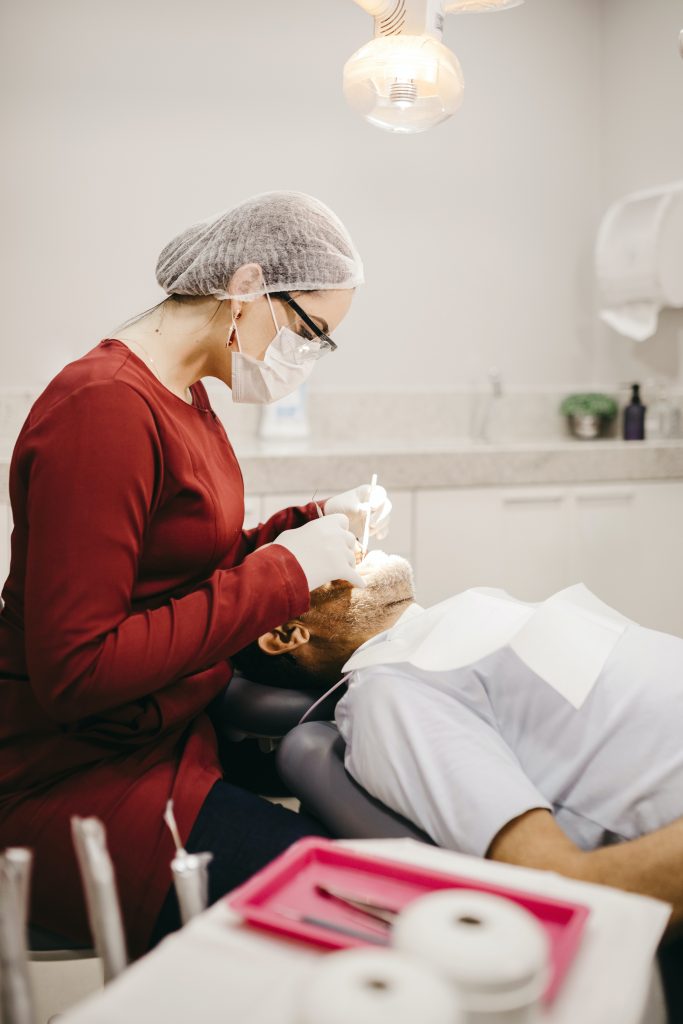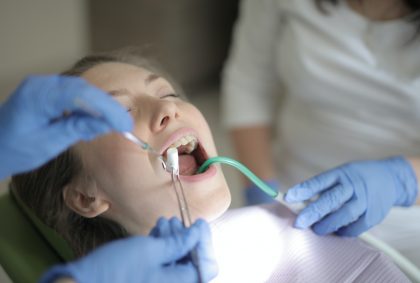Dentistry is the medical area dedicated to the study of teeth and related structures and to the treatment of diseases that affect them. This specialty is in charge of everything related to the stomatognathic apparatus, which is made up of all the organs and tissues of the oral cavity, and in some areas of the skull, neck, and face.
This discipline is responsible for protecting people’s oral health, preventing and remedying oral diseases. The main oral ailments, such as cavities, periodontal pathologies or tooth loss, can be prevented by constantly maintaining a routine of adequate oral hygiene and regularly visiting the dentist , a professional dedicated to this specialty.

In this sense, Dentistry is essential to enjoy optimal oral health and to maintain quality of life, since in the long run all the aforementioned diseases and even others, such as certain infections, canker sores and oral cancer.
How is dental health in charge of dental health?
Oral cancer
This pathology is usually prevalent in men and older people. Tobacco and alcohol are the two main factors that usually cause this disease.
Dental caries
This oral disease, often accompanied by a sensation of pain or discomfort, originates when the dental tissues are destroyed, affecting the dentin or even, on certain occasions, the pulp to different degrees.
Treating cavities in time is essential to avoid other major problems such as tooth loss, periodontitis and damage to the supporting bone.
Periodontal diseases
The main pathologies that affect the gums are gingivitis and periodontitis. The first is a process by which the gums end up becoming inflamed, while the second is an aggravation that damages the soft tissues and bones that support the teeth until they fall out.
Cleft lip and palate
It is a congenital defect that appears in one of every 500 or 700 newborns. It occurs when the upper lip and palate do not develop properly during the first months of pregnancy.
Tooth loss
The total loss of dentition is a very common phenomenon that usually affects a large part of the elderly. The main reasons for the loss of teeth are in the presence of cavities and periodontal diseases for a long time.
Oral trauma
Between 16% and 40% of the population suffer oral trauma and blows that affect the teeth, especially in children.
Why do oral diseases usually appear?
The importance of oral health is such that, without it and without the necessary care to maintain it, we are at the mercy of a large number of serious oral diseases. The main reasons why oral pathologies appear are an incorrect oral hygiene routine, a poor diet, and the consumption of tobacco and alcohol.
In addition to causing this type of ailments, more severe chronic diseases can be triggered, such as cancer, cardiovascular and respiratory diseases, as well as diabetes.
The importance of oral health, prevention and dental treatments
The vast majority of oral conditions can be treated with proper dental care. Having a good and trusted dentist is very important to maintain optimal oral health, as he will take care of timely preventive treatments and correct any abnormalities in the teeth and gums.
Some of the dental treatments that the dentist performs most frequently are the following:
– Deep dental cleaning. It is advisable to go to one of these cleanings at least 1 time a year, even once every six months to maintain the health of the oral cavity.
– Elimination of cavities. It consists of removing the affected tissue and subsequently placing a dental filling in that hole.
– Tooth extraction: Remove parts affected by caries or periodontal disease in very advanced stages.
– Orthodontics: Correction of dental alignment and malposition.
– Endodontics. It consists of removing the pulp from the tooth and filling it with gutta-percha to keep the tooth in the mouth.
– Oral Implantology. Placement of dental implants to replace missing or extracted teeth .
– Dental Aesthetics. Procedures to improve the appearance of the teeth.
At present, Dentistry has evolved in such a way that it has been achieved that a dentist can cover various areas, always from an approach that contemplates the prevention, diagnosis, and treatment of diseases that affect any part of the mandibular structure.
